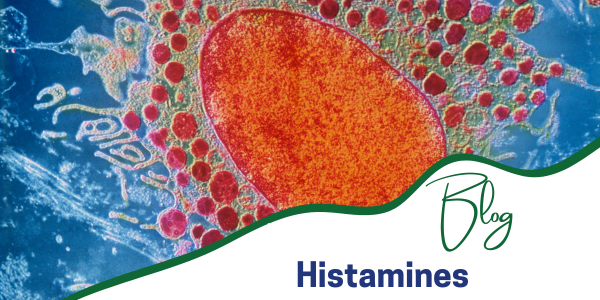Histamines are molecules that play an important role in our immune system. They are responsible for triggering an inflammatory response to protect us from harmful foreign substances. However, histamines can also have a negative impact on our digestive system if they are not properly regulated. In this blog post, we will be shedding light on the truth about histamines, what they are, and how they can affect your digestion. We will also discuss ways to manage histamine levels to improve gastrointestinal health.
As mentioned, histamines are a natural component of the immune system. They are produced by mast cells, which are found in various tissues, including the gastrointestinal tract. When the body encounters a potential threat, such as an allergen or pathogen, mast cells release histamines into the bloodstream. This causes the blood vessels to dilate and increases blood flow to the affected area, leading to swelling, redness, and other allergy symptoms.
In the gastrointestinal tract, histamines play a critical role in regulating acid secretion in the stomach. However, excessive histamine release can also lead to digestive issues. The most common symptoms associated with high histamine levels are stomach cramps, bloating, diarrhea, and nausea. This is because histamines can cause the smooth muscles in the intestine to contract, leading to discomfort.
One way to manage histamine levels in the body is to avoid foods that are high in histamines or trigger histamine release. This includes certain types of cheese, fermented foods like sauerkraut and kimchi, and alcoholic beverages. Other foods that can trigger histamine release include citrus fruits, tomatoes, chocolate, and nuts. While some of these foods are essential for a balanced diet, they should be consumed in moderation, especially if you have a histamine intolerance or digestive issues.
Another way to reduce histamine levels is to take supplements that contain natural antihistamines such as quercetin, vitamin C, and bromelain. These supplements can help block the release of histamines and alleviate allergy symptoms. Other supplements like DAO (diamine oxidase) can help break down histamines in the digestive tract. Zinc, magnesium, and omega-3 fatty acids have also been shown to have beneficial effects on histamine levels.
It is also important to promote a healthy gut by consuming a nutritious and varied diet rich in prebiotics and probiotics. Studies have shown that gut health can play a significant role in regulating histamine levels. Prebiotics, such as chicory root and Jerusalem artichoke, can help promote the growth of beneficial gut bacteria, while probiotics, sauerkraut, and kimchi, can help restore a healthy balance of gut bacteria. This, in turn, can help improve digestive health and reduce histamine intolerance symptoms.
In conclusion, histamines play an important role in our immune system, but excessive histamine release can also lead to digestive issues. Fortunately, there are different ways to manage histamine levels naturally, including following a low-histamine diet, taking natural antihistamines supplements, and promoting gut health. By staying mindful of the foods you eat, and taking care of your gut, you can alleviate digestive symptoms and enjoy better overall health.

